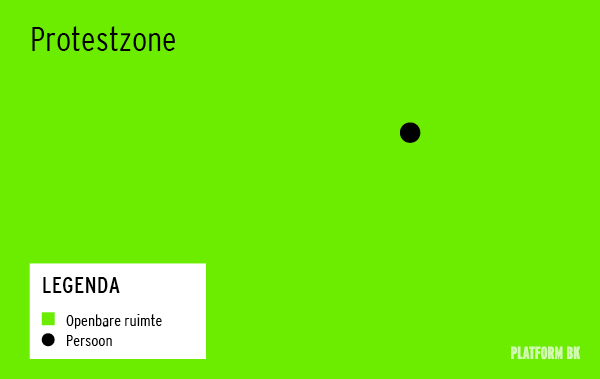After the Arab Springs in Tunisia, Libya and Tahrir in Egypt, the emergence of Indignados and Occupy and the mass protests in western countries against neoliberal politics, which resulted in the largest world-wide socio-economic crisis, this is the next chapter in the on-going battle for the political future. These are local flashpoints of global instability and shared sentiments.
The binding factor is the criticism of neo-capitalism: the shared space is becoming privatised and, consequently, is caving in. It is about having a say in the political and public space, something Europe seems to have last long ago.
In Turkey the revolt was triggered by plans for Taksim Square and Gezi Park, in which trees would make way for a mosque and an opera building. There are also plans for a shopping Mall, which Istanbul already has plenty of. Prime Minister Erdogan moreover, wants to construct a replica of the Ottoman barracks that were destroyed in 1940 on the same site where in 1909 a failed coup was instigated by officers sympathising with the sharia. Nowadays, Taksim Square is the symbol of the Turkish secular and progressive civilian: May 1st demonstrations and the Gay Pride take place here, and there is a monument commemorating the founding of the modern Turkish state.
Erdogan’s plans are viewed as the cultural restoration of Islamic Ottoman times and the dismantling of the secular state. This restoration goes hand in hand with the embrace of neo-liberalism: far-reaching privatisation, the construction of megaprojects and practices about which complaints of favouritism and corruption are often heard. Resistance is fuelled by new measures that encroach on people’s private lives, such as the tightening of abortion laws and restrictions on alcohol use. Together with his authoritarian presentation, this is causing large parts of the population –from both the traditional left as secular nationalistic backgrounds– to rise against Erdogan. Criticism on Erdogan’s political shortcomings is also coming from Muslim religious circles.
At stake in the broad resistance are the principles of the democratic foundations: a just constitutional state and co-determination of shared public spaces.
There are quite a few Dutch rapporteurs covering the events on site. Artists like Jerome Symons, Lidwien van de Ven and Martinus Benders are reporting live, as are others who are involved such as Defne Ayas, director of Witte de With in Rotterdam and Charles Esche of the Van Abbe Museum in Eindhoven. This marks the internationalisation of involvement and the globalisation of political sentiments.
Also the power of social media has been made apparent: information is spread globally, instantaneously, increasing the pressure on those in political power. It’s no coincidence that Erdogan’s government is now alluding to foreign interference. What is worst is that all forms of resistance are automatically labelled ‘terrorism’. This is a classic strategy to place unwelcome voices outside of the legal order, outside of the democratic dialogue.
There should be even more pressure to debunk and unmask this farce and show it for what it is: an effort to mobilise timid national sentiments into a repressive cordon sanitaire that serves to silence criticism.
L’Internationale, a collaboration between several European Museums, published their first pamphlet in which they appealed to the Turkish government to allow for a dialogue instead of repressing the continuing protests. L’Internationale was founded with the aim to promote allegiances within a transforming Europe and to redefine the role of cultural platforms (museums) within these changing constellations. Museums from the old Western Europe, the new Eastern Europe and from Turkey, seek to examine and shape this reconfiguration. The pamphlet points out the pressure that is being applied by the Turkish government on people and institutes in the cultural field. Just like other critics of the government, the art world is being curtailed and rhetorically placed in the camp of the enemy of the people, whereas the artistic space is described in the pamphlet as the space in which ‘social, political and cultural differences can be explored and exchanged in peace, and with respect for contradicting views.’
As specialists of the shared cultural space, L’Internationale has not only laid down an accurate definition of the artistic space, it is also the correct definition of the shared political and social space. Indeed, this is the space that needs to be protected as is currently happening in various places and regions. Turkey could become a crossroads for these different movements that demand the same thing: more tolerance, better management and more participation. More shared space.
Jack Segbaars is an artist, curator and writer. This essay is a “Retort” written at the request of Platform Beeldende Kunst. “Retort” is an initiative of Platform BK and aims to direct the debate on art and culture with timely responses to cultural policies and coverage on art in the media.
